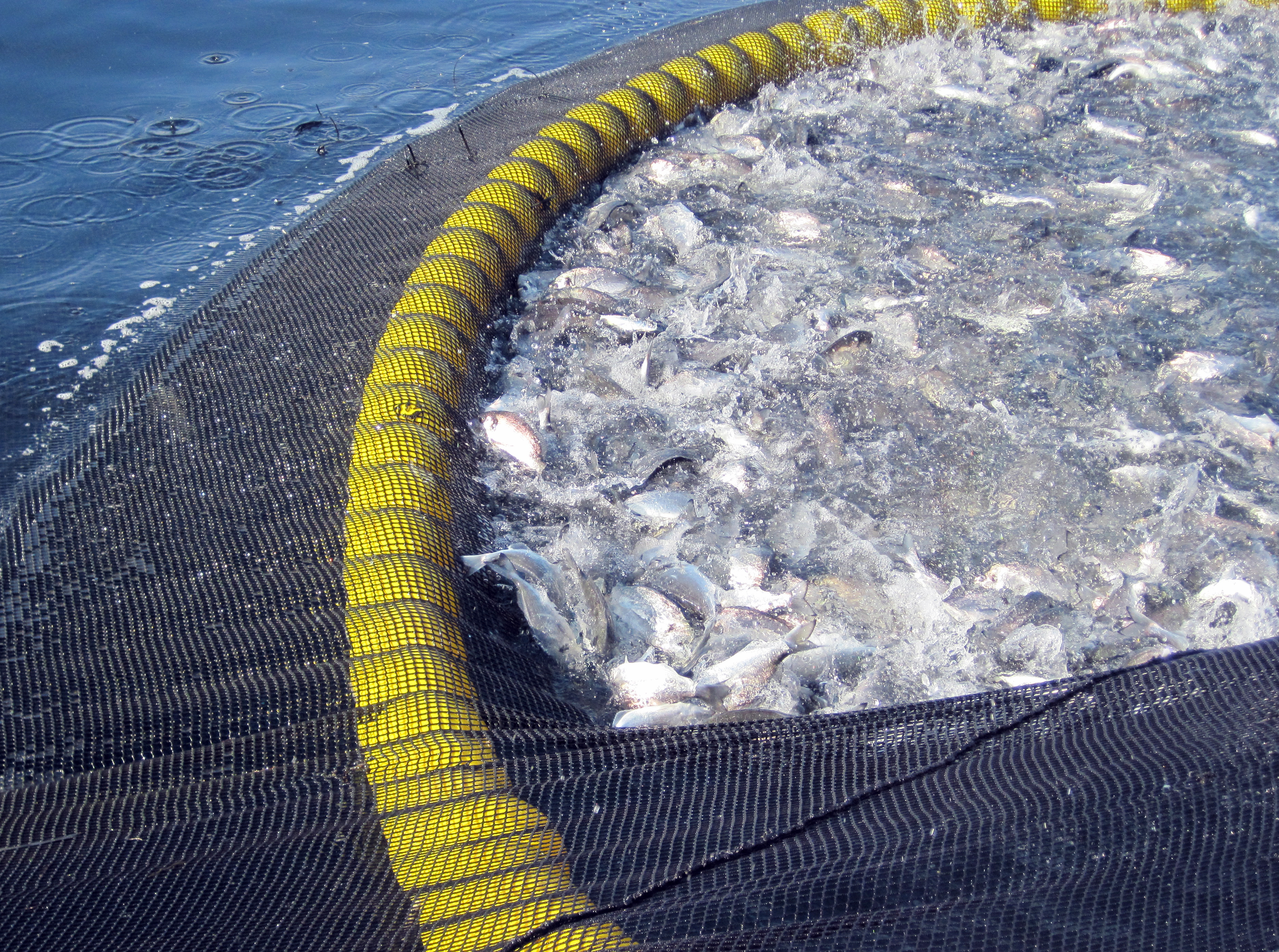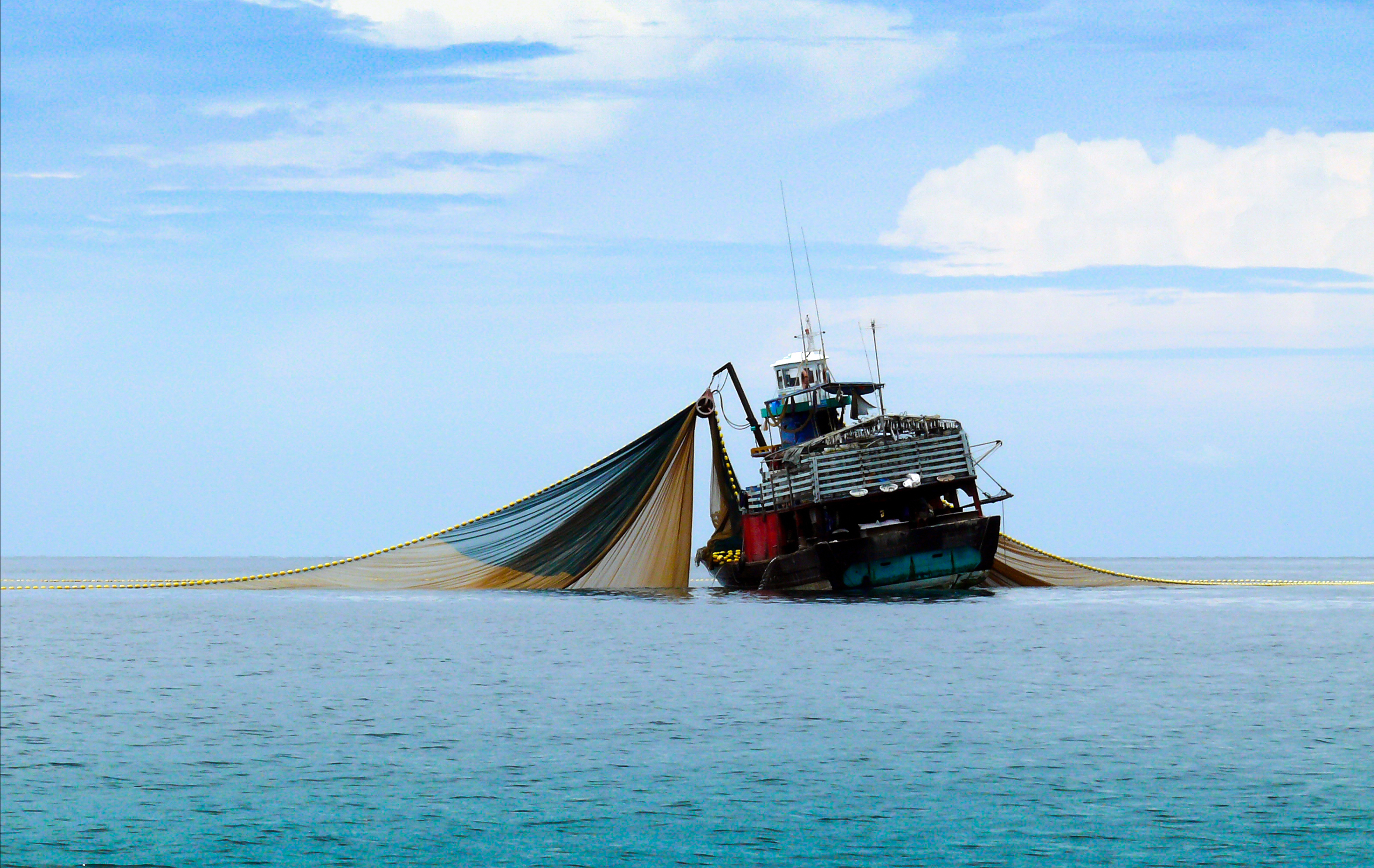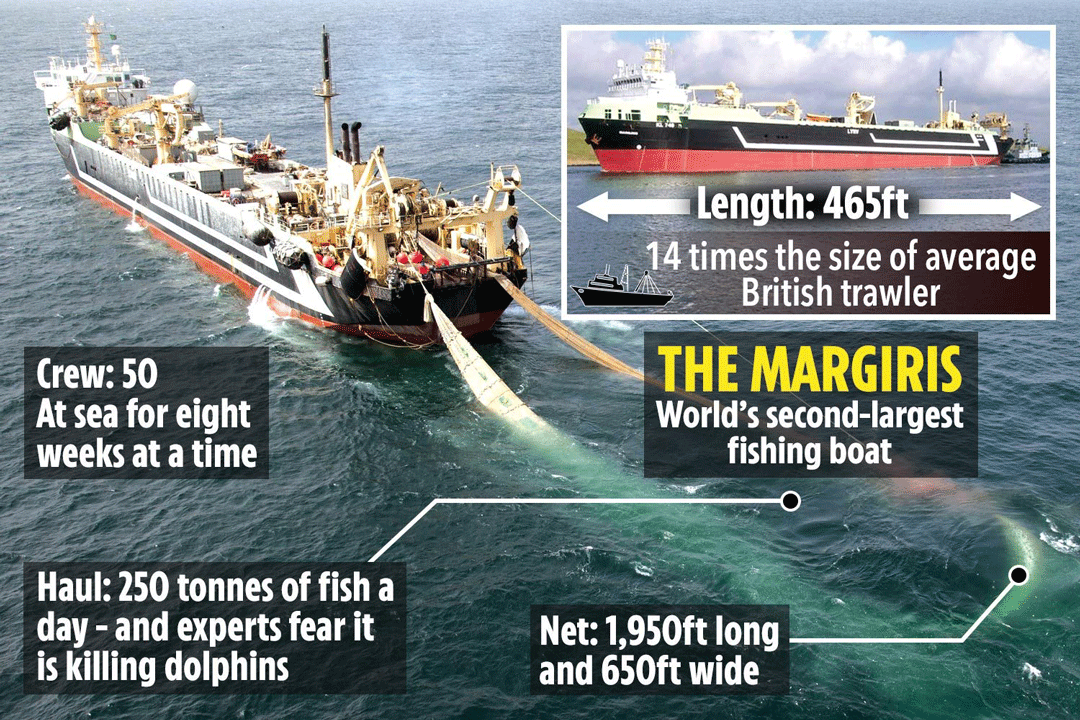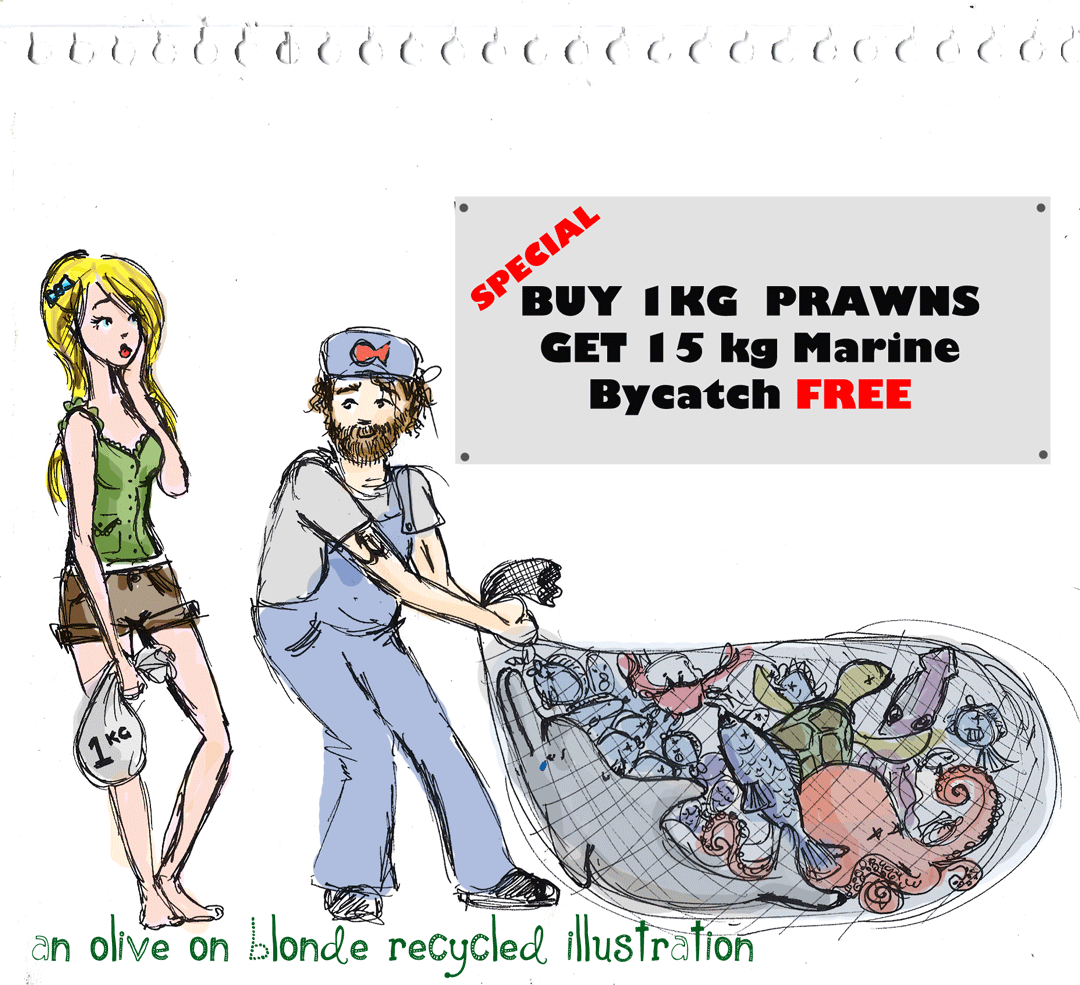Consuming seafood is a conservation issue we need to address
As conservationists, we spend significant time and resources collecting fisheries’ data, trying to implement sustainable fishing practices, and protecting species affected by fisheries profit-driven habits. We hope to keep harvest at or below maximum sustainable yield, reduce by-catch or even intentional catch of endangered or threatened species, and in turn stop the depletion of our oceans (or what’s left of them). A majority of this effort focuses on policy and management of the fisheries themselves; however, I feel we are not talking enough about what drives the fisheries: the high demand for seafood.

Industrial giltheads fishing scene. Photo © Valerio D'Ambrogi | Shutterstock
Sustainable fishing, along with proper fisheries management, is essential to help curb unsustainable harvest. In fact, my research is about providing managers with critical ecological data on pelagic sharks to help protect them. But what they really need protection from is tuna boats, purse seines, long lines, and the abominable super trawlers (Figure 1). Even the most honest, most law-abiding fishermen still pull in copious amounts of by-catch, which is discarded back into the sea with slim survival rates. Additionally, fishing quotas are not set to ensure the conservation of target or by-catch species. Managers make decisions to increase yield, create jobs, and support related economic benefits; therefore conservation is not always the ultimate goal, even when ample science on the topic is available. The regulations reflect the needs of the fisheries as a whole, not the species being harvested. So again, even following all laws and regulations, commercial fisheries are still devastating our oceans, not to mention the detrimental effects of all the illegal, unreported, and unregulated fishing (about 1/3 of the global catch).

Large fishing trawlers are fishing in the sea. Photo © NarisaFotoSS | Shutterstock

Super Trawler. Picture © The Sun News - Thesun.co.uk/news
The public needs to understand how their choice to consume seafood impacts marine ecosystems, which impacts ocean health, which impacts our future on this planet. If they knew that one pound of shrimp purchased equalled roughly nine pounds of by-catch discarded, would that pound of shrimp be worth it to them? Or if they also knew the habitat fished for that shrimp was greatly damaged, would that be enough to sway their purchase? Do people realize how many marine species, including endangered sharks, are in their pet foods and beauty products? If people understood the actual impact of their consumer choices, could we reduce this damaging demand? Here are just a few ideas we as conservationists, activists, responsible consumers, or just as humans can do to help. I’d be happy to hear more from any of you (Kraftd@hawaii.edu). I believe these things could have a good impact in addition to proper management of fisheries.
- Utilize educational social media campaigns designed to teach the general public about how their daily consumption choices impact ocean health: such as the infographic and comic in this blog post.
- Finish research talks with a few things everyone in the audience can do such as stop eating canned tuna, order veggies not fishies, and/or personalize suggestions to your own research topic.
- ‘Be the change you want to see in the world’. Reduce your impact on the oceans, and educate your family and friends on these issues.

Image © Olive on Blonde | OliveonBlonde.com
When trying to curb the exploitation of our oceans, we need to address the problem from start to finish. Yes, we need proper fishing regulations and effective management of our marine resources, but we also need to put effort into reducing the demand for fisheries. We need the public to think more about their consumer choices–we all vote with our dollar. As a conservationist, I stopped eating fish four years ago, except on my birthday when I eat sushi. If you can reduce your intake of seafood, you will make a difference. If we can get a large number of people to do this, we can make a bigger difference. When it comes down to it, fish can’t reproduce as fast as we are currently eating them. We have to stop ignoring the impact that consumer choices have on our oceans.
